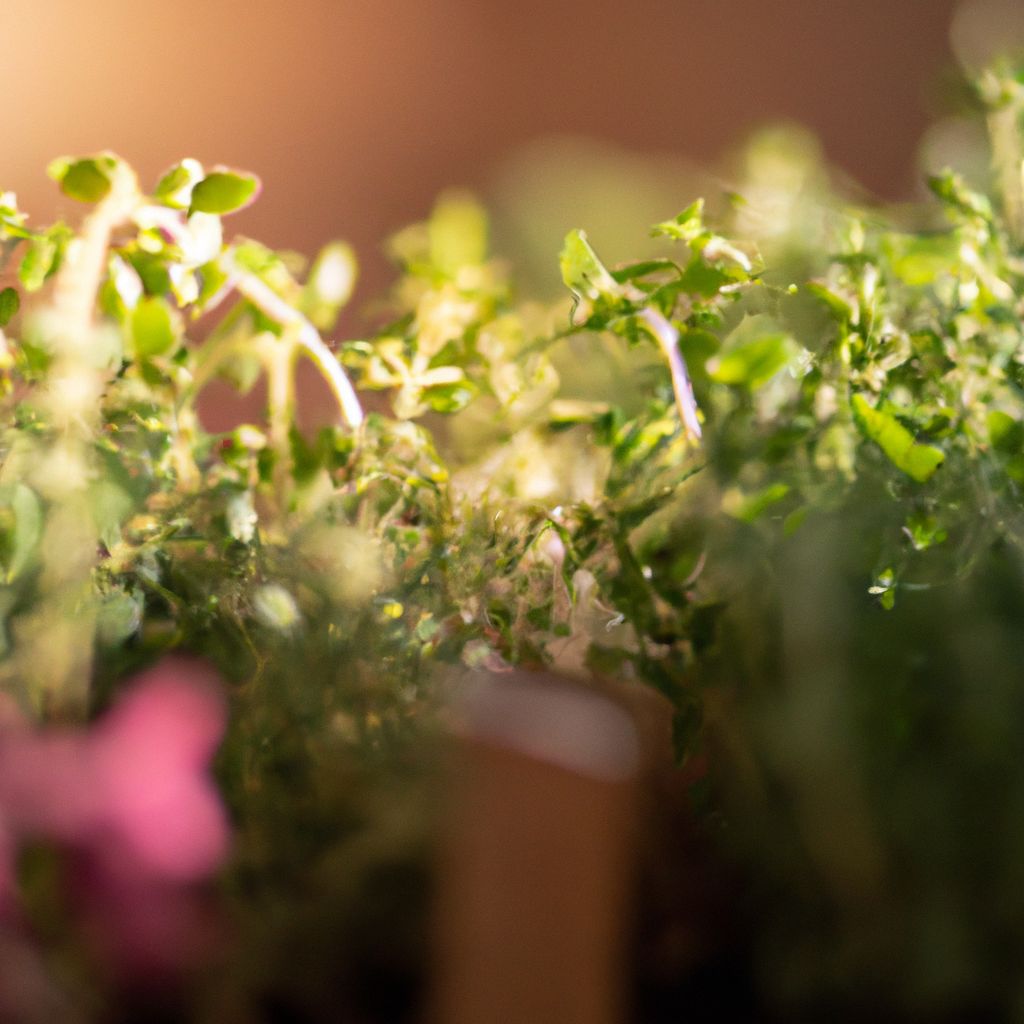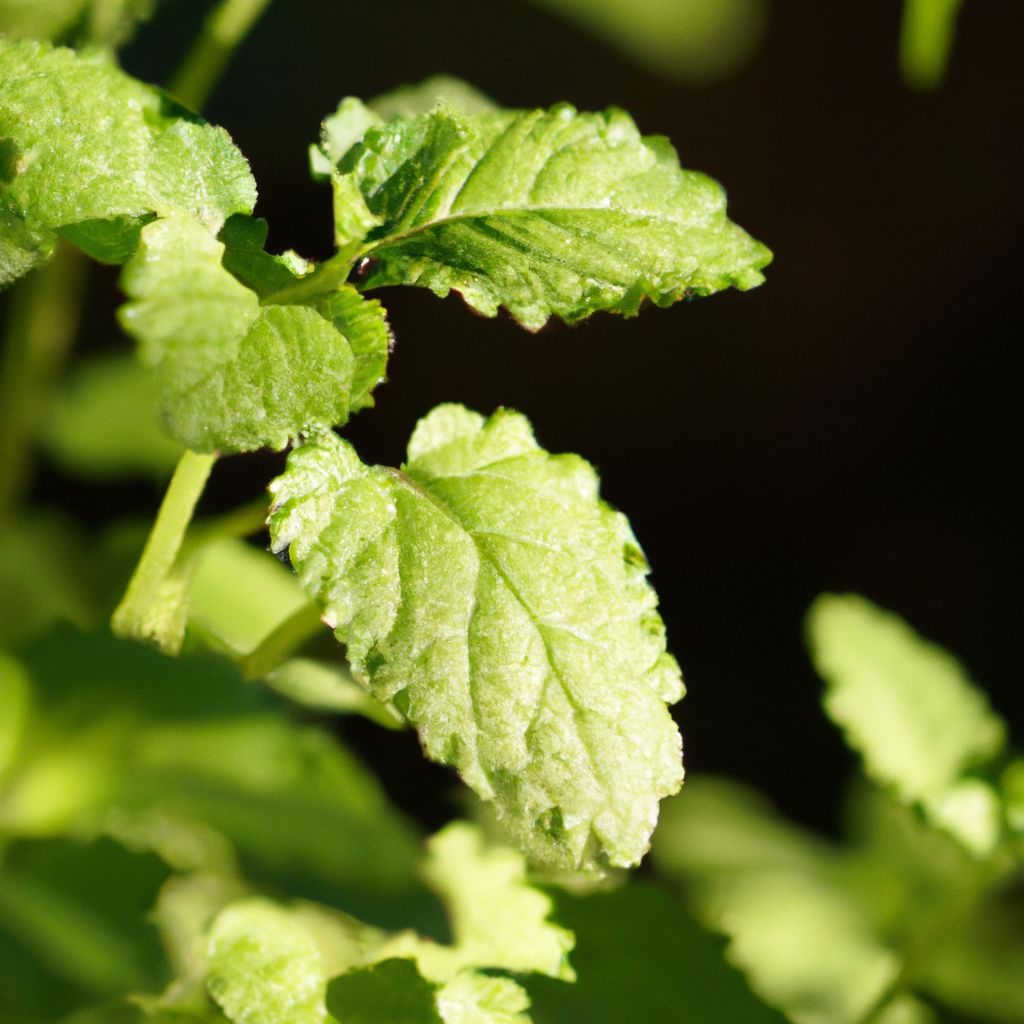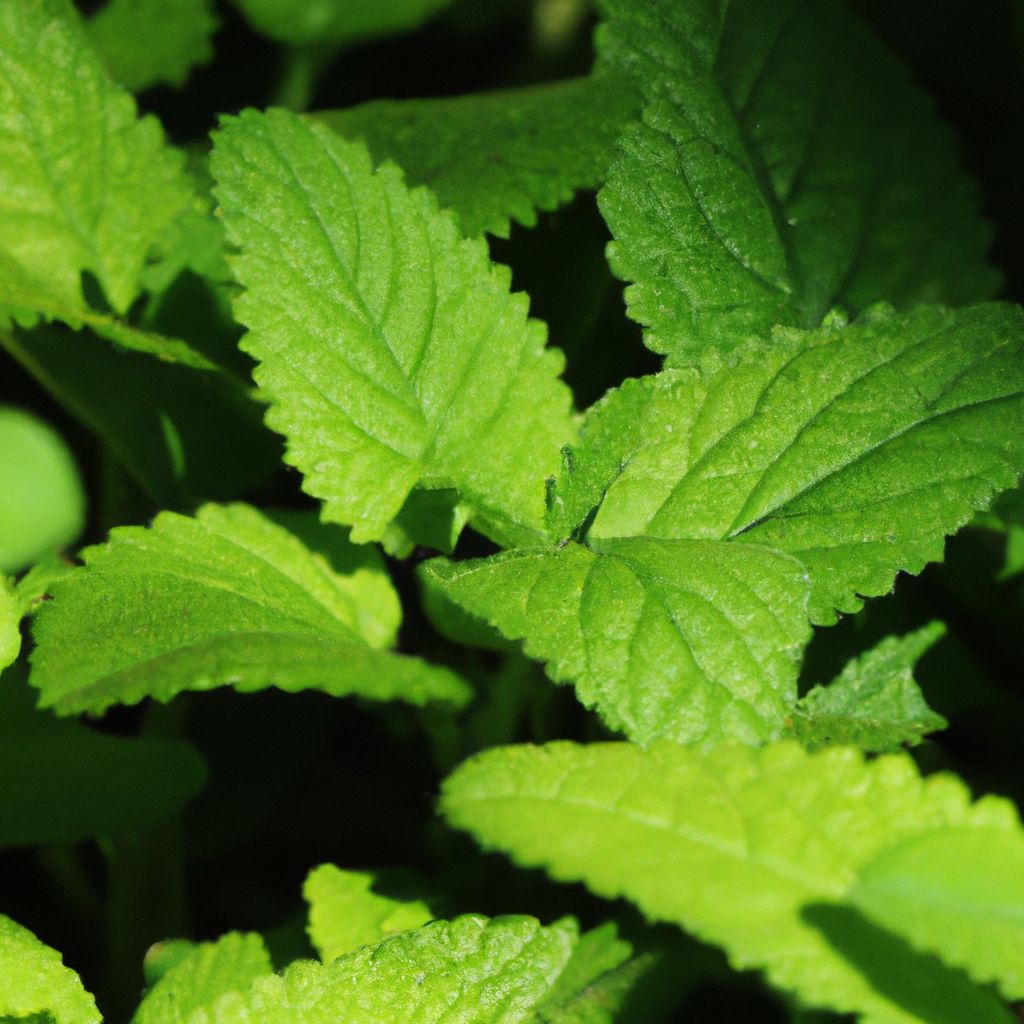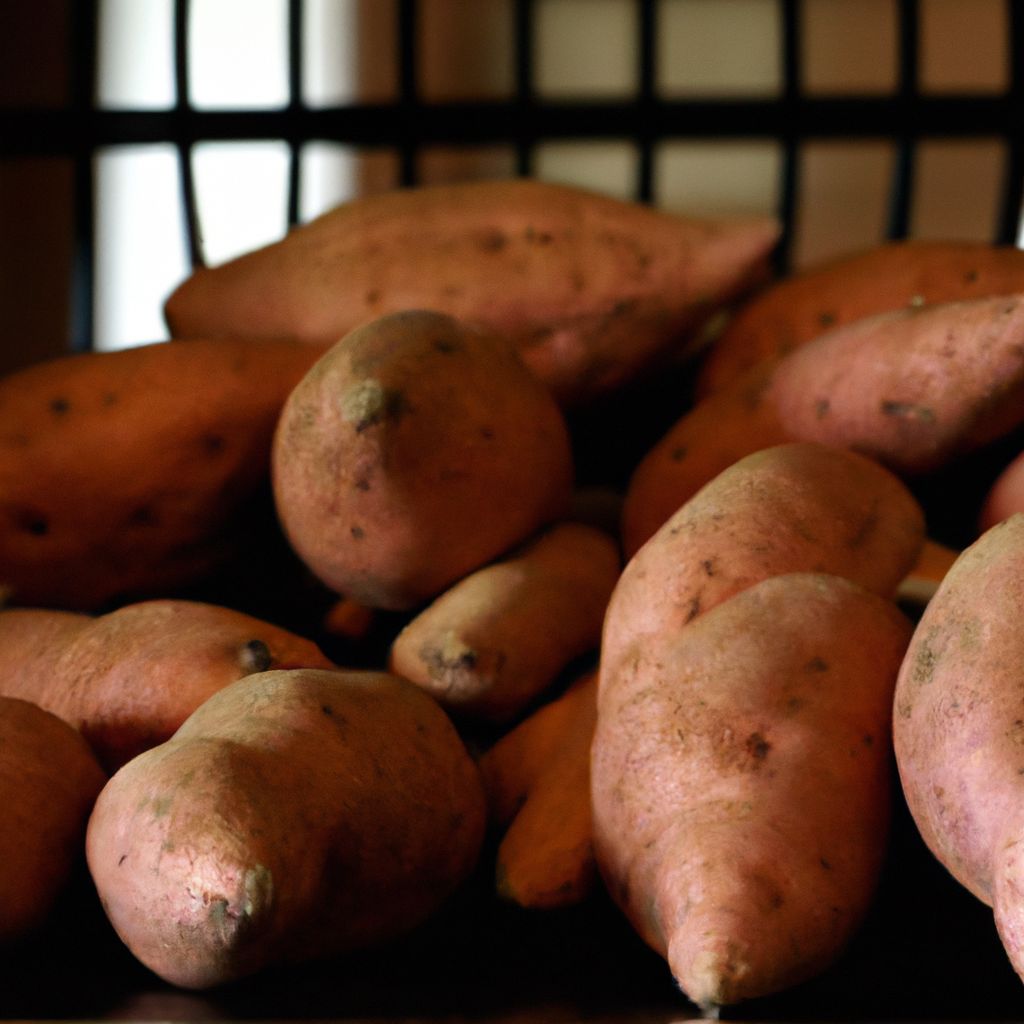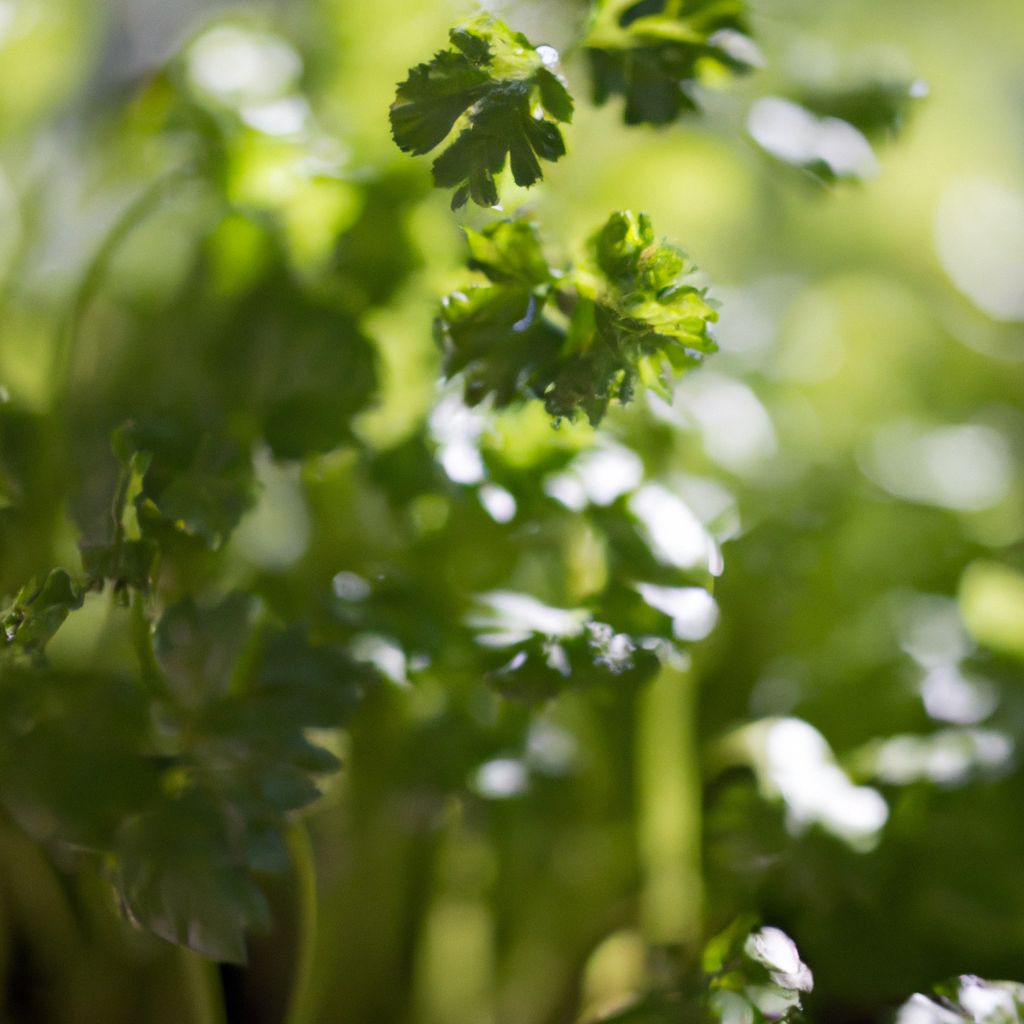Eastern African homegrown herbs offer a bounty of unique flavors and health benefits making them a rewarding addition to any garden. With proper care and preparation, these herbs can thrive, providing a fresh and sustainable supply of seasonings and natural remedies.
Growing your own Eastern African herbs allows you to immerse yourself in the rich traditions of the region. Whether you are hoping to enhance the flavor of your meals or explore the medicinal properties of these plants, cultivating them at home connects you to centuries of culinary and cultural heritage.
Choosing the Right Herbs for Your Garden
When selecting which herbs to cultivate, consider the climate needs, space requirements, and your intended uses.
- Sun-loving plants like basil and dill thrive in full sun exposures while parsley and mint prefer partial shade.
- Compact herbs like thyme and sage flourish in small spaces while spreading plants like mint require more room.
- And if you plan on cooking Italian food, basil and oregano are must-have additions.
Selecting herbs aligned with your local growing conditions, garden space, and cooking needs sets you up for success.
Key Considerations When Selecting Herbs
There are a few key factors to keep in mind when choosing which herbs to grow:
Sunlight Needs
Pay attention to how much sunlight an herb needs. For example:
- Full Sun Herbs: Basil, oregano, rosemary
- Partial Sun Herbs: Parsley, cilantro, mint
Soil Conditions
Factor in what type of soil an herb prefers:
- Well-drained soil: Rosemary, thyme, lavender
- Moisture-retentive soil: Mint, chives, cilantro
Climate Suitability
Select herbs suited to your regional climate:
- Cooler climates: Parsley, cilantro, chives
- Warmer climates: Basil, sage, rosemary
Space Requirements
Consider the space herbs will take up:
- Compact herbs: Thyme, oregano, marjoram
- Spreading herbs: Lemon balm, mint, chamomile
Intended Uses
Choose herbs that align with your planned uses:
- Cooking: Basil, thyme, sage, parsley
- Teas: Mint, lemon balm, chamomile
- Medicinal: Echinacea, calendula, valerian
By taking these factors into account, you can select the ideal herbs for your unique needs and growing conditions.
Preparing the Soil for Optimal Growth

Preparing the soil is key to establishing ideal growing conditions. Start by clearing away any weeds or debris from the planting area. Test the soil pH and nutrient levels, making any necessary amendments to optimize fertility. Work organic compost into the soil to improve drainage and nutrient absorption. The soil should be loosened 8-12 inches deep and moist but not soggy. Applying mulch helps regulate temperature, prevent weed growth, and retain moisture. Taking the time to create enriched, well-draining soil gives your herbs an optimal foundation to thrive.
Steps for Preparing Soil for Eastern African Herbs
Follow these key steps when prepping soil for Eastern African herbs:
Clear the Planting Area
Remove any weeds, rocks or debris that could impede growth.
Test the Soil
Check pH and nutrient levels to identify any needed amendments.
Add Organic Matter
Work in compost or manure to enrich fertility and drainage.
Loosen the Soil
Use a tiller or fork to loosen soil 8-12 inches deep.
Incorporate Fertilizer
Mix in organic or balanced synthetic fertilizer as needed.
Ensure Adequate Moisture
Water soil before planting so it is moist but not saturated.
Facilitate Drainage
Incorporate amendments like sand to improve drainage.
Apply Mulch
Add 2-3 inch layer of mulch to retain moisture and temperature.
Proper soil preparation provides the ideal foundation for herbs to flourish.
Soil Amendment Options
There are several types of organic and inorganic amendments that can optimize soil conditions:
- Compost: Increases nutrient content and improves moisture retention.
- Manure: Boosts organic matter and microbial activity.
- Peat Moss: Lightens heavy soil and retains moisture.
- Sand or Perlite: Increases drainage in compacted soil.
- Lime or Sulfur: Balances overly acidic or alkaline soil pH.
- Bone meal: Provides phosphorus and calcium.
- Kelp meal: Supplies potassium, magnesium and micronutrients.
Select amendments tailored to your soil’s needs for the best results.
Caring for Your Herbs
To care for your herbs, situate them in a spot receiving at least 6 hours of sunlight daily. Prepare each hole and space plants appropriately before filling with enriched soil. After planting, be sure to thoroughly water to settle the roots. Establish a consistent watering routine to maintain ideal moisture levels. Applying mulch conserves moisture and deters weeds. Monitor closely for pests or diseases and take prompt action. Harvesting at peak freshness ensures optimal flavor. Regular pruning encourages new growth and healthy plants. With attentive care, your herbs will flourish.

Planting and Caring for Eastern African Herbs
Follow these tips for planting and caring for Eastern African herbs:
- Choose a location with 6+ hours of direct sunlight.
- Prepare soil by removing weeds and adding compost.
- Select herbs suited to your climate and space limitations.
- Dig holes for each herb with proper spacing for air circulation.
- Place herbs in holes, fill with enriched soil, and water thoroughly after planting.
- Establish a consistent watering routine to maintain moist soil.
- Add a layer of mulch to lock in moisture and reduce weeds.
- Inspect regularly for pests or diseases and address issues promptly.
- Harvest herbs at peak flavor, in the morning before it heats up.
- Prune herbs regularly to stimulate new growth.
Proper planting and attentive care ensures thriving herbs.
Ongoing Care and Maintenance
Caring for herbs is an ongoing endeavor. Here are some key maintenance tasks:
- Watering: Water herbs in morning, avoiding foliage. Allow soil to partially dry between waterings.
- Weeding: Gently remove weeds, being careful not to disturb herb roots.
- Pruning: Snip off dead or damaged growth. Cut back herbs after flowering.
- Fertilizing: Apply organic fertilizer once or twice per growing season.
- Pest Control: Monitor for aphids, mites, beetles, etc. Remove by hand or use organic sprays.
- Disease Management: Prevent fungal issues by pruning and improving air flow. Remove diseased plants promptly.
- Harvesting: Snip leaves or stems with pruners or scissors. Time harvest based on herb.
Consistent care keeps herbs thriving season after season.
Popular Varieties and Their Uses
Many popular Eastern African herbs offer both culinary and medicinal benefits. Lemongrass provides a citrusy flavor perfect for infusing into teas, soups, and curries while also acting as an insect repellent. The nutritious moringa leaves add a distinct flavor to salads, soups, and dishes while also containing antioxidants that support immune health. Cardamom with its sweet and spicy aroma enhances curries, breads, and coffee while aiding digestion. And antiseptic neem leaves not only flavor soups and curries but also help treat skin conditions. The versatile applications of these herbs make them appealing additions to any garden.
Common Eastern African Herbs and Their Uses
Here is an overview of some popular Eastern African herbs along with their culinary and medicinal uses:
Moringa
- Description: Fast-growing tree with edible nutritious leaves
- Culinary Use: Soups, curries, salads
- Medicinal Use: Boosts immunity and reduces inflammation
Coriander
- Description: Delicate, lacy leaves with aromatic seeds
- Culinary Use: Curries, marinades, dressing, garnish
- Medicinal Use: Aids digestion and relieves nausea
Lemongrass
- Description: Tall grass with zesty lemon flavor
- Culinary Use: Soups, teas, curries
- Medicinal Use: Relieves pain and acts as insect repellent
Aloe Vera
- Description: Succulent plant with gel-filled leaves
- Culinary Use: Juices, smoothies, drinks
- Medicinal Use: Soothes burns, wounds, and skin irritations
Cardamom
- Description: Spicy-sweet aromatic seeds from pod plant
- Culinary Use: Curries, coffee, breads, stews
- Medicinal Use: Eases digestion, prevents stomach ulcers
These versatile herbs are perfect for both cooking and natural remedies.
Ways to Use Eastern African Herbs
There are many ways to incorporate Eastern African herbs:
- Add fresh leaves to salads, soups, and stews.
- Use dried, crushed herbs to season meats, vegetable dishes, and curries.
- Infuse into oils and vinegars to create flavored dressings and marinades.
- Steep fresh or dried leaves in hot water for flavorful herbal teas.
- Mix with other herbs and spices to create unique rubs, spice blends, and sauces.
- Juice or blend into smoothies, health drinks, and protein shakes.
- Craft infused honey, syrups, and sugars using fresh herb sprigs.
- Garnish finished dishes with whole sprigs or chopped herbs.
Get creative with these fragrant, flavorful herbs!
Health Benefits of Eastern African Herbs
In addition to adding flavor, many herbs from this region provide health benefits that make them worth including in your diet and natural medicine cabinet.

For example, moringa is an excellent source of essential vitamins, minerals, and antioxidants that boost immunity, energy levels, and overall wellbeing. Cardamom aids digestion by stimulating enzyme secretions and relieving stomach discomfort. Antibacterial neem leaves help treat various skin ailments and improve oral health when used topically.
Here is an overview of the many medicinal uses of Eastern African herbs:
Anti-Inflammatory Effects
Herbs like ginger, turmeric, and holy basil contain anti-inflammatory compounds that can help reduce swelling, joint pain, and skin irritations when consumed regularly. The antioxidant phenolic acids in oolong tea also decrease inflammation.
Immune Support
Echinacea, garlic, and astragalus root have been shown to enhance immune function and potentially reduce the frequency of colds. Moringa and hibiscus provide high levels of vitamin C to boost immunity.
Digestive Aid
Peppermint, fennel seeds, and ginger ease digestion by relaxing the digestive tract and increasing bile production. The fiber in psyllium husk promotes regularity. Dandelion acts as a diuretic and mild laxative.
Stress Relief
Adaptagenic herbs like ashwagandha, holy basil, and bacopa help counteract the effects of stress by regulating cortisol levels and neurochemical balance in the brain. Chamomile has a calming effect.
Detoxification
Burdock root, nettle, and ginseng contain diuretic compounds that increase urine output to flush out toxins and kidney stones. Milk thistle supports liver function.
Heart Health
Hawthorn berry, ginger, and garlic improve circulation, lower blood pressure and cholesterol levels. Hibiscus tea helps prevent atherosclerosis.
Be sure to consult your healthcare provider before using herbs medicinally, especially if you take other medications or have specific health conditions. When taken consistently, these powerful plants can profoundly impact wellness and vitality.
Growing Herbs Successfully
Growing flavorful, prolific herbs requires selecting suitable plants, providing optimal growing conditions, and practicing proper care and maintenance.
Key Tips for Success
Follow these guidelines to maximize success when cultivating Eastern African homegrown herbs:
- Select herbs suited to your region’s climate and growing seasons. Choose plants that fit the sunlight conditions of your location.
- Prepare garden beds or containers with rich, well-draining soil. Enhance fertility by mixing in aged compost before planting.
- Give herbs adequate space for good air circulation and growth. Follow seed packet spacing guidelines.
- Water young plants daily until established. Then water moderately when top few inches of soil become dry.
- Mulch around plants to retain soil moisture and reduce weeds. Replenish mulch annually.
- Fertilize with organic matter like compost tea or fish emulsion during growing season.
- Prune herbs frequently to encourage bushy growth. Pinch off flower buds to prolong harvest.
- Monitor for pests like aphids and diseases. Control issues ASAP using organic methods if possible.
- Harvest herbs by cutting stems or individual leaves just above leaf nodes. Time it based on use.
Starting Herbs from Seed
Many herbs can be grown from seed successfully:
- Select a quality herb seed variety suited to your climate. Check the seed packet for planting times.
- Start seeds indoors 6-8 weeks before your region’s last expected frost date. Use sterile seed starting mix and containers.
- Sow seeds according to packet directions and lightly cover with mix. Water gently to avoid displacing seeds.
- Place containers in a warm, sunny spot. Maintain consistent moisture until sprouts emerge.
- Gradually acclimate seedlings to outdoor conditions by setting them outside for short periods.
- Transplant seedlings outdoors after danger of frost has passed. Harden off plants for 7-10 days first.
- Space transplants appropriately and water well. Add protective row cover if frosts are still possible.
With proper planning, many herbs can be grown efficiently from seed.
Preserving Eastern African Homegrown Herbs

A bountiful harvest of fresh herbs won’t last forever. Preserve your herbs to enjoy their flavor and health benefits year-round. Here are some options:
Drying
One of the easiest ways to preserve delicate herbs long-term. Simply:
- Harvest herbs on a dry morning after dew has evaporated.
- Rinse gently and pat dry with a towel. Discard any bruised or damaged leaves.
- Air dry herbs by hanging bundled stems or laying leaves on screens in single layers.
- Place in an area with good airflow and low humidity. Dry until crisp – about 1 week.
- Crumble dried leaves off stems. Store immediately in airtight containers.
Freezing
Retains flavor and color of fresh herbs for months when frozen properly:
- Ensure herbs are thoroughly cleaned and dried. Remove any decaying or wilted leaves.
- Chop, purée or leave leaves whole. Pack into freezer bags or airtight containers, removing excess air.
- Alternatively, place herbs in ice cube trays filled with water or olive oil for easy use.
- Label frozen herb packages with the date and name. Use within 6-12 months for best quality.
Infused Vinegar
Infusing vinegar with herbs provides a tangy, flavorful liquid for recipes and dressings:
- Clean and pat dry delicate herb leaves like basil, mint or lemon balm.
- Place a few tablespoons of lightly packed herbs into sterilized jars. Pour in vinegar until they are fully submerged.
- Screw lids on tightly and store in a cool, dark place. Shake jar daily for 2-3 weeks as vinegar infuses.
- Strain vinegar through a cheesecloth and transfer back into sterilized bottles. Refrigerate for up to 3 months.
With a variety of techniques, you can enjoy your herb harvest all year long.
The Rich History of African Herbs
For thousands of years, herbs and medicinal plants have been integral to African culture. Passed down through oral and written traditions, knowledge of their culinary and healing properties has been preserved through generations. Eastern African homegrown herbs are no exception, in fact this is one of the time-honored methods of maintaining a handy supply.
Traditional African Herbalism
Herbalism has long been a respected and vital practice in African civilizations. Herbalists carefully studied the curative powers of local flora under apprenticeships. Key elements of traditional African herbal medicine include:
- Primarily oral transmission of herbal knowledge over centuries
- Focus on natural, plant-based treatments for disease and illness
- Synergistic combinations of herbs, roots, barks for greater potency
- Ritualistic and spiritual aspects to herbal preparations and treatments
- Passing down expertise from herbal masters to apprentices
African herbs continue to be widely used for wellness in modern times. However, habitat loss threatens the future of many indigenous healing plants. Conservation efforts are crucial for preserving these important natural resources.
Medicinal Herbs in Ancient African Societies
The first known medical texts documenting African herbal remedies dates back to Ancient Egypt. Examples of influential Egyptian medicinal herbs include:
- Aloe Vera– Used to heal burns, wounds and skin issues
- Garlic and onions– Given to provide strength and prevent colds
- Castor oil plant– Used to treat eye irritations and hair loss
- Frankincense and myrrh– Promoted digestion and oral health
Other significant ancient African civilizations noted for their herbal medicine include the Nubian, Kushite and Axumite kingdoms. Herbal lore was passed down in these societies through both written texts and verbal communications.
Cuisine and Spirituality
Beyond medical applications, herbs and spices have strongly influenced African cuisine, culture and spirituality over the ages.
- Various indigenous African religions and belief systems incorporate herbs for spiritual cleansing, protection, and divination rituals.
- Spices like grains of selim, African ginger and Guinea pepper provided unique flavors to traditional African dishes.
- Practices like using sorghum in beer-making demonstrated how herbs were interwoven into daily life.
Herbs have profoundly shaped African customs and health practices throughout history. While modern medicine has become widely accessible in Africa, traditional herbalism remains culturally significant and is still commonly practiced alongside conventional treatment options. Preserving this long-standing herbal knowledge ensures it can continue benefiting communities for generations to come.
Popular Herbs and Spices in African Cuisine

The use of flavorful herbs, spices and aromatics is integral to African cooking. Complex spice blends and herb combinations create robust, aromatic profiles that define many iconic regional dishes. Here are some notable herbs and spices used in African cuisine:
Thyme – This minty, herbaceous ingredient is widely used to season meats, stews, curries and vegetables across Africa. Both fresh and dried thyme feature prominently in North African and Saharan dishes.
Ginger, garlic and onions – These aromatic vegetables serve as flavor bases for many African recipes. They are often sautéed in oil at the start of cooking and provide layers of flavor.
Scotch bonnet chile peppers – These extremely hot peppers add fiery heat to West African stews, curries, and marinades. They are valued for their intense spiciness.
African nutmeg – This spice has aroma similar to its namesake but with hints of clove and black pepper. It is used in North and East African cuisine to flavor breads, curries, meats and stews.
Berbere – This Ethiopian spice mix contains chiles, garlic, fenugreek, ginger, basil and more. It provides a signature spicy, earthy flavor.
Umngqusho – A South African herb, it is simmered with beans, cornmeal and pumpkin leaves for the dish of the same name.
Hibiscus – Dried hibiscus flowers and leaves add tart, cranberry-like flavor to beverages and desserts, especially in North Africa.
African basil – With a strong clove aroma, it flavors Ethiopian and Eritrean stews and curries.
The herbs and spices used across Africa’s many cultures and ethnic groups create unforgettably bold, complex flavors.
Easy African Herb Garden Ideas
Looking for inspiration for starting your own African herb garden? Consider these simple ideas for low-maintenance, beginner-friendly gardens:
Window Box Herb Garden
Plant an assortment of cooking herbs like basil, parsley, thyme and sage in a sunny window box. They will be conveniently right in your kitchen for seasoning dishes.
Moringa Tree
Moringa is a fast-growing tree native to Africa whose leaves add nutrition and flavor to recipes. One low-maintenance tree can provide continuous harvests.
African Tea Garden
Grow herbal African tea plants like rooibos, honeybush and lemon verbena in pots on a patio table for sunset tea time.
Medicinal Herb Garden
Create a healing garden with African herbs like aloe vera, ginger, mint, and chamomile to make home remedies.
Egyptian Cuisine Garden
Grow Egyptian flavor staples like thyme, coriander, fennel and parsley to add authentic taste to North African dishes.
Ethiopian Veggie Garden
Plant nug herbs and greens used in Ethiopian cuisine like kale, collards, onions and basil in garden beds or containers.
Taking inspiration from African traditions, you can design a simple, meaningful herb garden to enjoy.
Q & A About African Herb Gardening
Get your top questions answered about growing herbs with African origins.
What are some good African herbs for container gardening?
Great African herbs for containers include moringa, lemongrass, aloe vera, mint, basil, and parsley among others. Focus on compact varieties.
Can you grow African herbs indoors?
Yes, many African herbs can thrive indoors with adequate sunlight from a southern window and ambient temperatures between 65-75°F. Try growing scented geranium, patchouli, claw basil or lemon balm.
What are the best Eastern African homegrown herbs to grow?
Popular North African herbs to cultivate include mint, parsley, cilantro, thyme, sage, fennel, chervil, rosemary, and tarragon. These herbs suit Mediterranean climates well.
How often should you water African herbs?
As a general rule, water African herbs when the top 1-2 inches of soil become dry. Water thoroughly until it drains from the bottom of containers. Avoid overwatering.
What are good companion plants for African herbs?
Great companions for African herbs include vegetables like tomatoes, onions and carrots as well as flowers like marigolds and nasturtiums which deter pests.
Can you bring African herb plants indoors for winter?
Many African herbs can be overwintered indoors like aloe vera, lemongrass, ginger lily, and scented geraniums. Gradually bring them inside well before first frost.
Cultivating African herbs, whether in beds, pots or indoors provides a chance to add fresh flavor along with cultural connection to your gardening. With their diversity and resilience, African plants can thrive when given the right care.











































